Tatum Robotics: Success Story
Winner – FORGE Product Development Grant
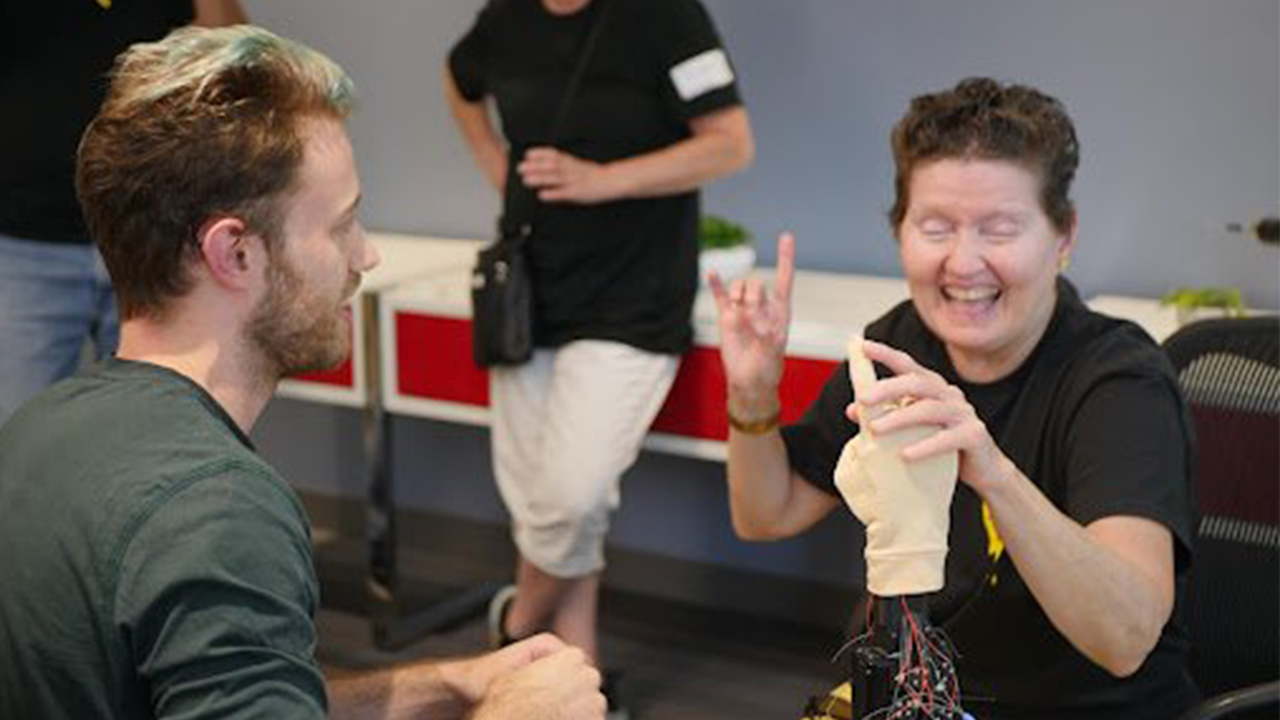
Deafblindness is a rare condition in which an individual has both hearing and vision loss, limiting access to both auditory and visual information. For many, a sign language interpreter is their only communication option since most individuals do not know how to use braille. Current innovations in DeafBlind communication methods have relied solely on braille tablets, leaving out most of the DeafBlind population. That lack of access to education and information leads to feelings of isolation and loneliness. Tatum Robotics has created the first communication device that outputs tactile sign languages to address that issue.
Tatum Robotics developed a technology that will completely transform communication for the DeafBlind community. Their tactile signing system incorporates the convenience of a refreshable braille tablet with tactile sign languages. Tactile signing requires a DeafBlind person, who receives signs through touch, to place their hand over the dominant hand of their signing partner to read their signs. Right now, there is no other device that can replicate that.
By the numbers
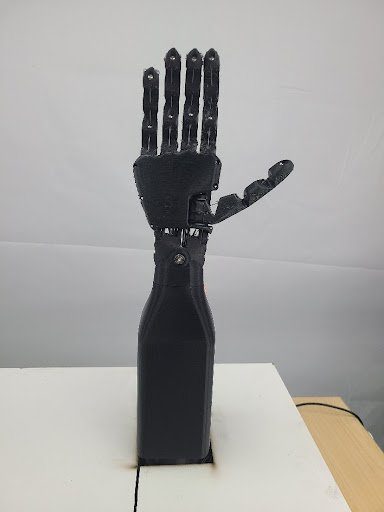
- ~150 million DeafBlind individuals worldwide
- Fewer than 10 percent of the 1.3 million people who are legally blind in the United States are Braille readers
The team is developing an armature system to mimic the tactile signing capabilities of a real human. Tatum employs machine learning, motion capture, and low-cost manufacturing to translate spoken language to sign languages without additional user input. This fingerspelling hand and wrist prototype has a humanoid feel and, coupled with a robotic arm to convey movement and space, can communicate using more complex words and phrases.
Over the past few years, the COVID pandemic has forced even more social distancing for DeafBlind individuals, increasing isolation and decreasing access to important news updates. This further motivates Samantha and her team to conduct preliminary validations she describes as “very rewarding”. Some users even experience overwhelming emotions while using the device, realizing how it could transform their lives.
As the winner of the FORGE Product Development Grant Award at this year’s Massachusetts Manufacturing Mash-Up, Tatum Robotics will use their $10,000 award to transition their product from beta prototype development towards manufacturing. They are also working on a more robust prototype to increase its longevity and manufacturability.
The Tatum team will conduct finite element analysis (FEA), failure mode and effects analysis (FMEA), and tolerance analysis prior to the assembly of final prototypes. The tests will confirm the design and material are smooth and comfortable, enabling DeafBlind users to interact safely with the device. The FORGE Product Development Grant will equip Tatum to begin pilot studies, placing these devices in the homes of DeafBlind individuals for testing.
This proposed project will enable the Tatum Robotics team to:
- Provide an effective at-home communication tool
- Create a classroom accessibility tool
- Increase DeafBlind access to remote healthcare
- Decrease isolation, improving Deafblind mental health
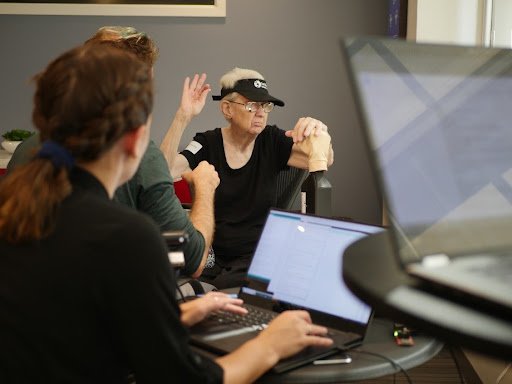
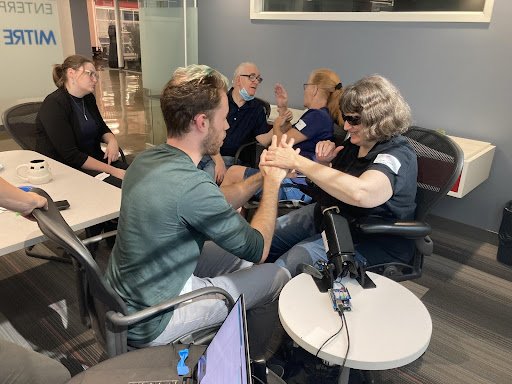
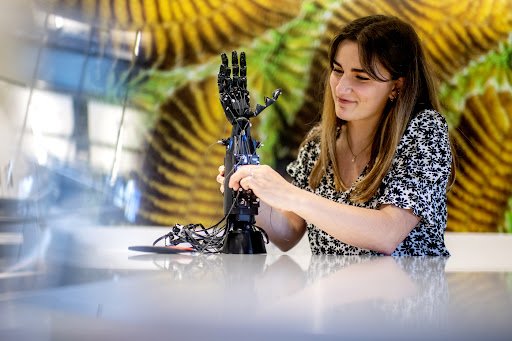
Tatum Robotics has been working with FORGE since early 2022 to discover potential manufacturing partners and helping Tatum build contacts for the manufacturing phase of their operation.
Samantha Johnson, founder of Tatum Robotics, has been working with people with special needs since middle school. She took part in a conversation club with students with cognitive disabilities and later helped special needs athletes compete alongside abled partners. As an athlete and coach herself, she “wanted to make people of all abilities feel included.”
Samantha conceived this assistive technology solution after meeting a DeafBlind woman during an ASL (American Sign Language) class at Northeastern University. Like most DeafBlind individuals, she did not know how to use braille. Working with faculty and students at the Perkins School for the Blind, as well as adults involved with the Deaf-Blind Contact Center, she learned more about the difficulty of accessing interpreting services and the lack of overall autonomy. Over the past two years, the Tatum team has received overwhelming encouragement from DeadBlind individuals, advocates, and paraprofessionals.
FORGE Product Development Grants are part of an ongoing program to help startups bridge gaps in funding to help them with research, materials, and production. For more information or to apply, click here.
